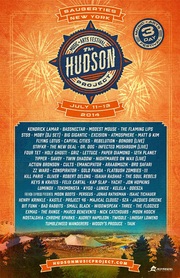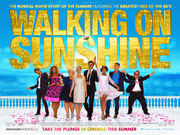Washington, DC (Top40 Charts/ RIAA) Simplifying the licensing system for musical works is key to further expanding the digital music marketplace, providing fans with more music options and creating healthier revenue streams for music creators, according to the Recording
Industry Association of America's (RIAA) official comments filed as part of the U.S. Copyright Office's examination of music licensing. But simplification will only occur, RIAA notes, if all stakeholders in the music community engage with an open mind.
The RIAA's comments examine the complex world of licensing the underlying musical work in a sound recording, a system that industry leaders throughout the music business would like to see modernized. Today, a new release by a record company can require a vast number of licenses to meet consumer demand. For example, RIAA notes in its comments that one record company responsible for a current, successful release had to obtain 1481 mechanical licenses for the project.
Digital music services face challenges launching with millions of songs. RIAA argues that a new system should simplify licensing by aggregating rights under a blanket license, much like ASCAP and BMI offer; ensure that owners of musical works receive fair market value for their works; and cover all the rights needed to bring modern music releases to market.
In its filing, RIAA emphasizes its desire to work with its partners across the music community in exploring new ideas to tackle the challenge:
…While the systems for licensing sound recordings are working reasonably well in many respects, everyone agrees that the systems for licensing musical works are not…We believe that fixing this system will require all stakeholders to work together to take bold steps, rather than just a little tinkering… The key is to update the systems that address the inherent challenges of musical work licensing in a way that all can agree will fairly and appropriately serve creators, rightsholders and the marketplace.
The groundbreaking proposal that RIAA hopes to work through with its industry partners would encourage blanket licenses that include all the necessary rights instead of multiple licenses from multiple entities with overlapping rights; and it includes a suggestion that publishers and songwriters be compensated with rates negotiated and agreed to by industry partners rather than those set by courts:
It is understandable that reform will be neither possible nor desirable unless songwriters and music publishers believe that it provides for rates that are more market-based than rates determined by the Copyright Royalty Judges or rate court. …One possibility would be…a rate that is an agreed, consistent, set percentage of label revenues from modern music products…Only if a precise percentage were negotiated and agreed by stakeholders might it then be suggested as legislation, so that no party would be agreeing to reform without understanding its economic consequences. This would be a market-based royalty, because labels' deals are negotiated in the marketplace, and publishers and songwriters would receive the percentage of that deal that they had previously negotiated with record companies.
Some of the potential advantages to such a licensing structure, according to the RIAA, include: market rates for publishers and songwriters; more consumer choice as simpler licensing procedures attract funding and development of innovative services; more revenue for services and higher royalties for creators resulting from savings from simplified licensing and payment procedures; improved accuracy of payments, transparency, and audit rights for publishers and songwriters; and viability for ASCAP and BMI, which would, among other things, continue to license radio, TV and venues as they always have.
"Modernizing the licensing system for musical works is a win for everyone -- from digital music services to songwriters, music publishers, artists, labels, and fans," said Cary Sherman, CEO, Recording
Industry Association of America. "That's the only way this will work - it must be a collaborative exercise. We don't pretend to have all the answers. But we know the status quo is not working like it should. It's time to have this conversation. It's time to think outside the box and begin to build a modern music marketplace - based on market-based concepts -- that work for all music creators. We appreciate the efforts of Congress and the Copyright Office in undertaking its examination of the complex licensing system."
RIAA also proposed incorporating pre-1972 recordings into the federal statutory license system and echoed the Copyright Office's call to establish a terrestrial performance right so that artists and labels can be paid when their music is played over AM/FM radio.























